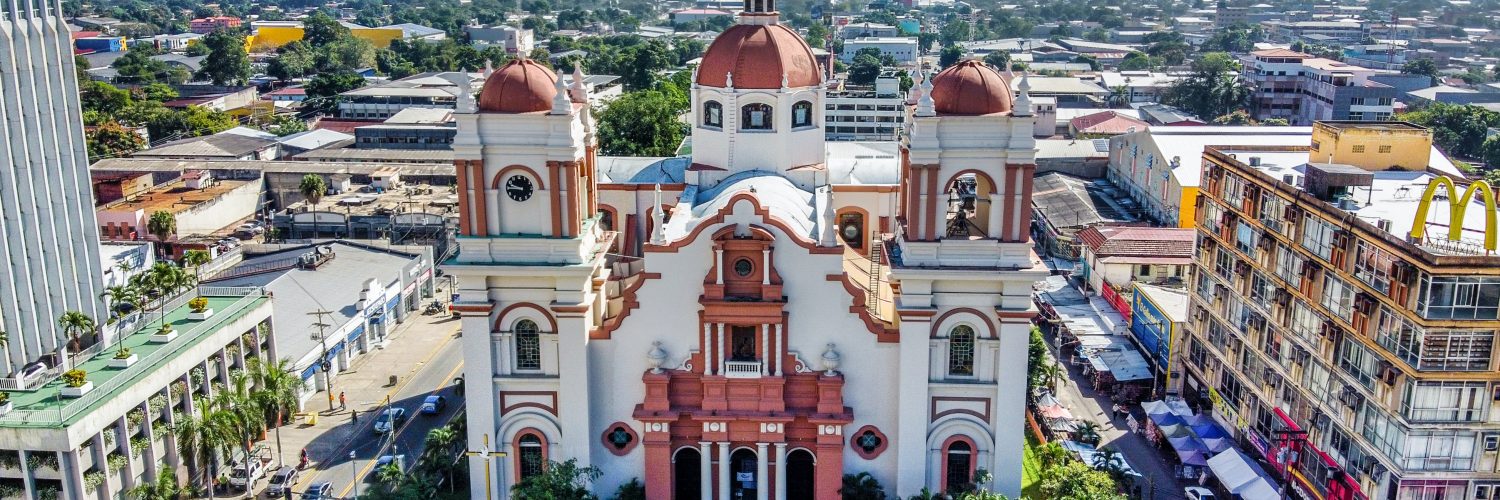Business journalism often exclusively focuses on the numbers, the cold, hard figures that are essential factors for decision makers. This is particularly true when it comes to Nearshore issues and internationalization strategies. From local tax incentives and commercial real estate to qualified workforce costs and general legal regulations, the numbers are crucial when selecting new outsourcing locations or operational hotspots.
But there are other elements that affect an organization’s decision to expand into foreign geographies. Nearshore Americas is interested in exploring these misunderstood, under the radar factors moving the Nearshore technology services market. We asked the question: what draws business leaders and their companies toward new locations?

Charles Fry, an American tech entrepreneur who founded the Honduras-based software development outsourcing company CODE Éxitos, identifies his passion and interest for Central America’s culture, particularly Honduras, as determining elements in setting up a business in Honduras.
“I knew a bit about the Latin America region before building CODE Éxitos. I’ve been coming here since 2008, and to Honduras specifically since 2010. As I approached the country, I understood that the basic premise was that there were brilliant people here but that they didn’t get the same opportunities that US-based professionals do. So I started developing the idea of opening a studio in Honduras to hire really smart people and teach, coach or mentor them, always with the goal of delivering products at the same level as companies in the US or Europe,” said Fry.
As Nearshore Americas has reported in the past, Honduras has called the attention of BPO decision makers, particularly in the call center sector. This attention mainly derives from a time zone alignment with clients in the US, easy connections to important US cities and favorable government policies.
For me, establishing an operation in Honduras seemed like the natural choice. I met many capable people in a place with so much potential. — Charles Fry
However, CODE Éxitos is a digital product studio working for entrepreneurs in the US and Europe who need to outsource the construction of their digital products, not a BPO. Honduras has seen the rise of a number of programs to support talent growth, including Thinkers & Makers, Media City Labs Academy and the Honduras Startup program, focused on coding, technology education and entrepreneurial development respectively.
Different events and initiatives have also helped foster the entrepreneurial spirit in the country. Spaces such as Startup Weekend, Creative Mornings and Angel Hack offer educational, mentoring and networking opportunities.
However, Fry, who has experienced with previous tech businesses in Austin, Texas confesses that even today people don’t often think about Central America as a region rich in strong software companies. Even when Central America is discussed in the technology space, Costa Rica‘s success monopolizes the conversation.
“When we think about the tech services in Central America, Costa Rica jumps to mind. The ecosystem there is very mature. But for me, establishing an operation in Honduras seemed like the natural choice. I met many capable people in a place with so much potential. It was a great opportunity in all directions,” Fry explained.
The standardization of remote work has allowed companies like CODE Éxitos to participate in a market traditionally dominated by companies based in established tech hubs. Nearshore technology services are now more diverse when it comes to geography. As the US and other developed economies face a deepening tech shortage challenge, which a Korn Ferry report predicts that could reach more than 85 million unfilled jobs by 2030, Nearshore markets will see more demand.
“Geography has become irrelevant for the kind of work we do. We tell our clients that it is faster to get plane and get here from Austin than to flight to San Francisco from the same origin. Actually, even when the majority of our people are based in Honduras, we do client work out of Austin as well and employ workers in the US, Mexico and Colombia. There are people everywhere who can do the work and just need a chance,” said Fry.
Measuring Success and Scalability
Despite the less prominent role of geography in software outsourcing operations, CODE Éxitos is deeply rooted in Honduras. The company is not immune to the challenges present in the region for digital expansion, education and outdated regulatory frameworks.
“I see education as a major issue,” said Fry. “All of our workers here are college graduates and bilingual and can do the job; that is why we hire them. Though there is a tendency elsewhere to connect memorization with academic achievement. We value creativity, and we identify as a creative company and not as a tech company.”
For Fry the educational gap present in the region along with outdated legislation in many countries introduce key challenges for emerging companies in Latin America.
It really feels like the US entrepreneurial environment 25 years ago, when it was better to take over your parents’ business instead of becoming an entrepreneur. — Charles Fry
“There are no incentives, and you might argue that in some cases there are disincentives for venture capital to enter early stage companies and high risk projects. It really feels like the US entrepreneurial environment 25 years ago, when it was better to take over your parents’ business instead of becoming an entrepreneur. We got to pass that stage. Building tech-based economies requires a new approach accompanied with effective legislation in key areas such as HR regulations, tax regimes and other legal aspects,” he said.
These issues might take decades to resolve, but CODE Éxitos has taken its own initiatives to support the advancement of its employees, and the ecosystem in general. The company developed the CODE Éxitos Academy, focused on their own internal training to guarantee upskilling and reskilling of workers.
Other projects like getting the B Corporation Certification or rewarding employees with an ownership piece of the business are building precedents to strengthen Latin America and Caribbean’s tech ecosystem.
“This speaks to our commitment as responsible global citizens and establishes models in Latin America for companies like us,” Fry concluded.










Add comment